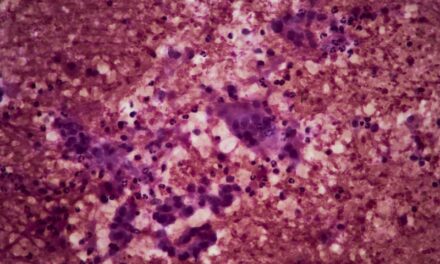Tumors biopsied from women with invasive breast cancer are having their genomes sequenced in an attempt to develop a DNA profile that one day may identify ahead of time the patients who will most likely respond to chemotherapy with an aromatase inhibitor.
Aromatase inhibitors are a class of chemotherapeutic agents that block the production of estrogen in postmenopausal women. The genetic profiling is part of an ongoing clinical trial of more than 300 postmenopausal women who had estrogen-positive stage II or III breast cancer at the time of diagnosis. Women in the trial are being randomized to receive one of three aromatase inhibitors for four months before they go on to surgery and chemotherapy. The clinical trial is being conducted by the American College of Surgeons Oncology Group (ACOSOG).
“The over-arching goal of genome sequencing in this clinical trial is to determine, after the fact, a genetic profile of response to aromatase inhibitors, and that of resistance. If we know the genetic profile of aromatase inhibitor response and resistance, we can use this information as a decision point for the treating oncologist. If we can predict that a tumor will respond to aromatase inhibitor therapy by shrinking, there’s a good chance a woman, even with a larger tumor mass, can undergo just a lumpectomy [surgical removal of the tumor] or a local excision process as opposed to a complete radical mastectomy [surgical removal of the breast and portions of the chest wall]. This will affect all aspects of recovery, including the cosmetic effect, the need for surgical reconstruction, as well as cost,” said Elaine Mardis, PhD, Co-director of The Genome Center at Washington University, St. Louis, MO and chair of the ACOSOG Basic and Translational Science Committee.
Dr Mardis reported on progress toward this goal at the semi-annual meeting of the ACOSOG. Most of the primary genomic sequencing data from women in the clinical trial are being collected. Dr Mardis and her colleagues, including Dr Matthew Ellis who originated the ACOSOG trial, are now analyzing the data so they can understand the genomic profile of women who respond to aromatase inhibitors versus the profile of women who do not respond. Profiles of the entire genome, including mutations in individual genes will be produced using next-generation sequencing instruments and advanced bioinformatic analysis approaches. The profiles will then be tested within the current ACOSOG clinical trial as well as in a new clinical trial to determine how well they predict response to an aromatase inhibitor in a clinical setting. Those trials may begin as early as this fall.
Similar types of genome-sequencing studies are being considered for other types of malignancies, such as colorectal cancer and potentially lung cancer, Dr Mardis said.
“Genome sequencing is a rapidly changing field. Only about three years ago, it took us eight months to sequence through a whole cancer genome in a leukemia patient. In the next couple of months, we will be doing tumor and normal genomic analysis in about a week. So you can get an idea of the rate of accumulation of data and the dramatic upsweep in terms of our capacity to perform whole genome sequencing in just the last couple of years,” Dr Mardis said.
Sequencing an entire genome tends to be costly and time-consuming. However, spot testing for the presence of a small number of genes can be performed quickly and cost-effectively, she said. “Sequence typing of specific genes is very doable in the current laboratory testing paradigm using a fairly small amount of DNA from a core biopsy. In the next few months, new technologies are coming online that will allow a genetic assay to be completed in less than a day. So you would have very fast turnaround, and the cost of the assay would be fairly low. Only time will tell whether we have to use the entire genome to make predictions about a patient’s aromatase inhibitor profile or whether we can get away with a focused, gene-by-gene approach,” she said.
Source: American College of Surgeons (ACS)



